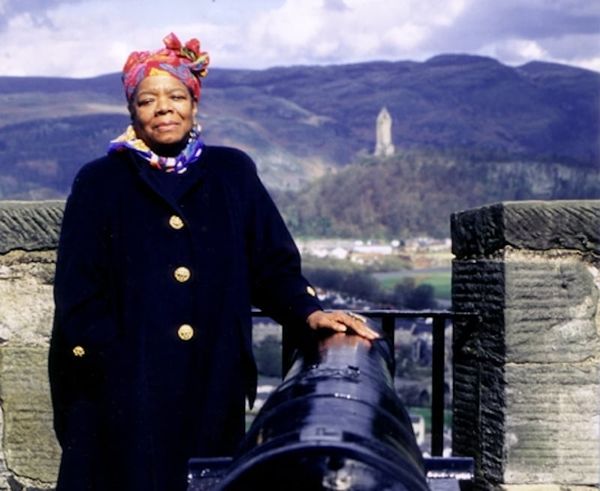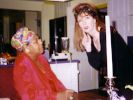Eye For Film >> Movies >> Angelou On Burns (1966) Film Review
Angelou On Burns
Reviewed by: Jennie Kermode

How could a Scotsman who died nearly two centuries previously speak to a young black girl growing up in the American South? The poet transcends race, place and time, says Maya Angelou, and looks to his words "A man's a man for a' that". She had a lifelong passion for the work of Scotland's favourite makar, and in 1996 she got the opportunity to travel to Ayrshire, meet fellow enthusiasts, see his home and attend a Burns Supper.
A cultural exchange of the best sort, Elly M Taylor provides a rare chance to see the great US poet as excited about somebody else's work as others are about hers. The Burns Night, in which every performer is clearly excited to address her specifically, becomes less a presentation and more a conversation, with Angelou performing one of her own poems, The Mask, with inimitable style. It's a hard-hitting, emotional moment but she feels that much of the time Burns is talking about the same issues. Responding to Sic A Parcel O' Rogues is A Nation she decrees "Everywhere in the world there are the sellers and those who get sold".

There's a focus, of course, on The Slave's Lament, with Angelou discussing the way she uses it in classes. She reflects on the way that Burns' humble residence reminds her of the place where she grew up, and finds another point of commonality in their experiences of familial support and of being mentored. She also engages in a joyful conversation, with a woman from the Burns Night group, about the makar's sexual behaviour, which both agree they would have been happy to take advantage of, whilst a man sits beside them awkwardly trying to make the case that Burns' attitude to women was problematic. Angelou is having none of that. She maintains that the women knew perfectly well what they wanted.
This is Angelou at her most magnetic, tough and passionate and full of lively intelligence. She's clearly delighted about getting to indulge in her passion and this, in turn, will provide a route into Burns' work for those who are unfamiliar with it - and, indeed, for Scots who have grown up with it and never given it serious attention. Her pronunciation of Scots is impressive, though every now and again an American vowel slips in, giving it a distinctive character.
A real treat for poetry lovers and a fascinating meeting of minds, this is a gem of a film, plucked from the archives by the Glasgow Film Festival, which deserves to be more widely seen.
Reviewed on: 07 Mar 2021














